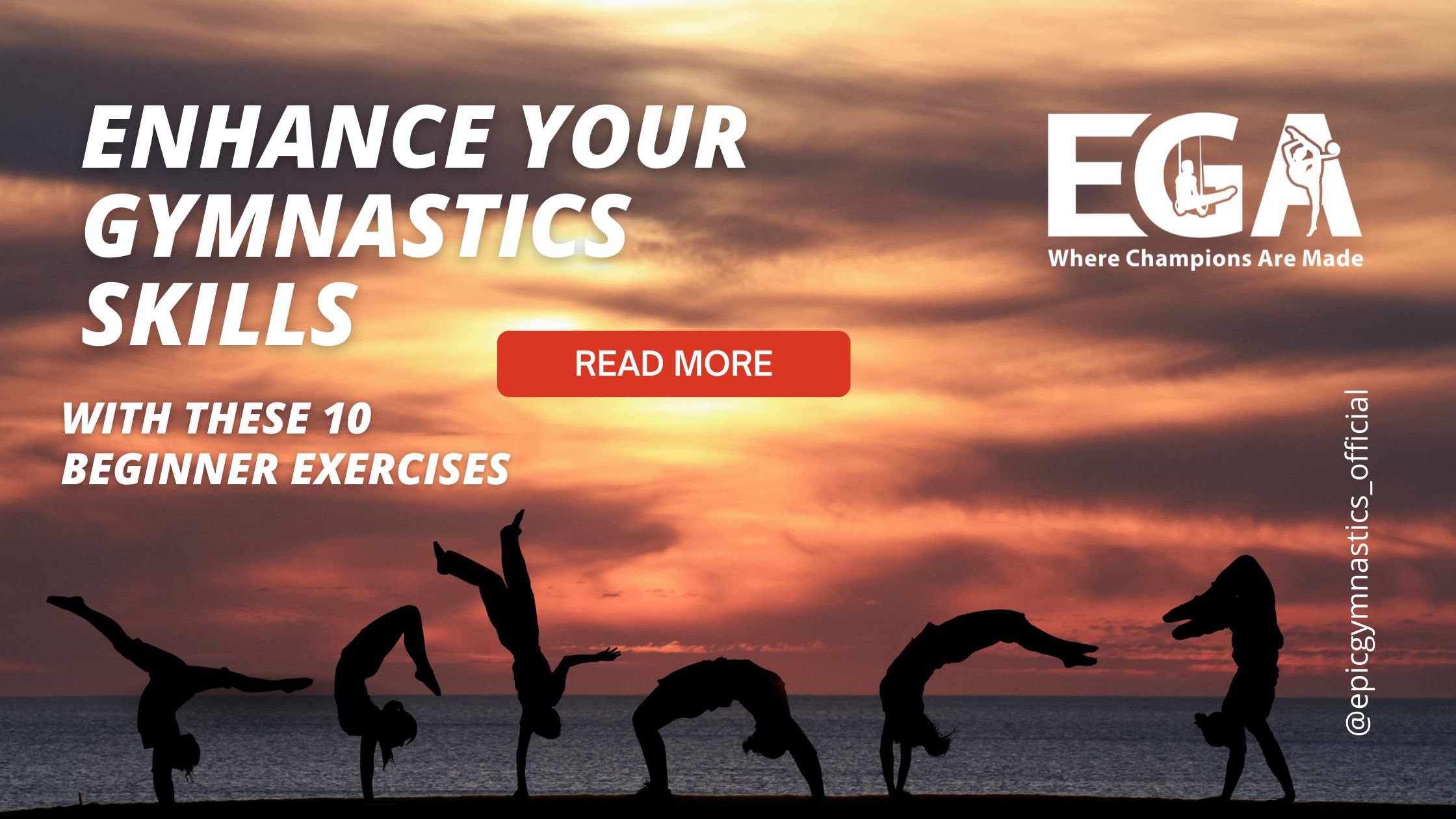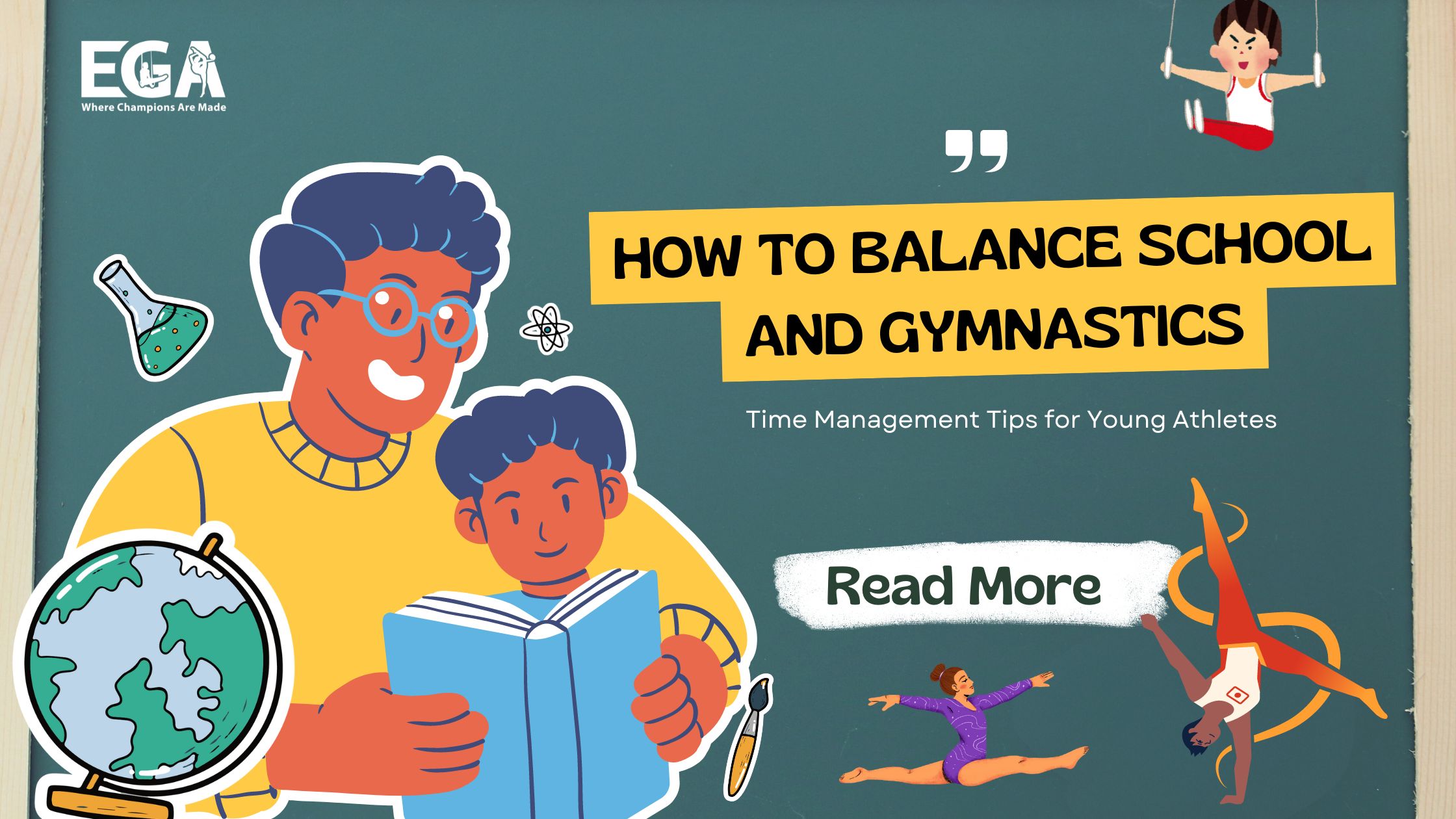
- +91 8553346300
- [email protected]
Menu

Being a young gymnast is both rewarding and challenging, especially when trying to balance the demands of school and rigorous gymnastics training. Young athletes at Epic Gymnastics Academy (EGA) often find themselves navigating between academic responsibilities and the intense physical and mental requirements of gymnastics. The key to success in both is mastering time management and developing the discipline to effectively prioritize tasks. This article will provide valuable strategies for young gymnasts and their parents on how to maintain a healthy balance between school and gymnastics.
Gymnastics, especially competitive gymnastics, requires several hours of training per week. This often involves evening or weekend practice sessions, leaving young gymnasts with limited time to complete homework, study, and participate in extracurricular activities. Many gymnasts find themselves juggling:
Despite these challenges, young gymnasts at EGA can learn to balance school and gymnastics effectively with proper planning, time management, and support from coaches and parents.
Maintaining a balance between school and gymnastics can help young athletes develop valuable skills that will benefit them both in the gym and in life, such as:
To manage school and gymnastics effectively, young athletes must adopt strategies that help them optimise their time and energy. Here are some practical tips for balancing both academics and training:
The first and most important step in managing time effectively is creating a structured daily and weekly schedule. Coaches at EGA encourage athletes to carefully plan their time, ensuring they give both training and academic commitments the attention they need.
Tips for Creating a Schedule:
Example Schedule:
This structured routine balances school and gymnastics throughout the day, reducing stress and promoting focus.
Goal-setting is key to maintaining motivation and managing time effectively. At Epic Gymnastics Academy, we emphasise the importance of setting short-term and long-term goals for both gymnastics and academics.
Gymnastics Goals:
Academic Goals:
How to Set Effective Goals:
Young gymnasts often underestimate the importance of rest and recovery. Rest isn’t just about physical recovery from gymnastics training; it’s also about mental recuperation. Proper sleep and downtime are crucial for both academic focus and physical performance.
Why Rest Matters:
Tips for Prioritising Rest:
Effective study habits are essential for keeping up with academics while balancing a busy training schedule. At Epic Gymnastics Academy, we encourage young athletes to adopt smart study techniques that optimise their time and help them retain information more effectively.
Study Techniques:
Open communication with both teachers and coaches is vital for managing school and gymnastics. At EGA, we believe that creating a supportive environment means understanding the challenges our young athletes face and offering flexibility when necessary.
Communicating with Teachers:
Communicating with coaches:
Many gymnasts at EGA spend time travelling to and from practice, competitions, or meets. You can use this travel time productively for academic work or mental relaxation.
Ways to use travel time efficiently
Organisation is key to balancing multiple responsibilities. Keeping track of assignments, due dates, competitions, and practice sessions is easier when you have a system in place.
Tips for Staying Organised:
Parents play an essential role in helping young gymnasts balance their schoolwork and gymnastics. At Epic Gymnastics Academy, we encourage open communication between parents, athletes, and coaches to ensure that the child’s well-being is always the top priority.
How Parents Can Help:
Maintaining a balanced diet and proper hydration is essential for young gymnasts who need energy for both school and training. Eating nutritious meals and drinking plenty of water helps improve focus in school and physical performance during gymnastics practice.
Key tips for balanced nutrition:
Balancing school and gymnastics can be overwhelming at times, which makes it crucial to recognise the signs of burnout early. If not addressed, burnout can have an impact on both academic performance and gymnastics skills.
Signs of Burnout:
Prevention Strategies:
Balancing school and gymnastics can be challenging, but with the right strategies, young gymnasts can excel in both areas. By creating structured routines, setting realistic goals, staying organised, and ensuring proper rest, student-athletes at Epic Gymnastics Academy can manage their time effectively and achieve success both in the gym and the classroom.
Parents, coaches, and teachers all play a key role in supporting young athletes, helping them navigate their academic and athletic commitments while maintaining a healthy, balanced lifestyle. By following these time management tips, young gymnasts will be able to build the resilience, discipline, and skills necessary to succeed both in gymnastics and in life.

Empowerment, Perseverance, Inspiration and Confidence - Epic Gymnastics Academy is here to support your journey and reach new heights in the world of Gymnastics.

Co Founder and COO of EGA - Epic Gymnastics Academy Bangalore




Epic Gymnastics Academy fosters a love for gymnastics with expert coaching and personalized training, helping athletes of all levels reach their full potential.
“Hard days are the best because that’s when champions are made.” – Gabby Douglas.
Disclaimer: The information provided on this website is for general informational purposes only. Epic Gymnastics Academy makes no representations or warranties of any kind, express or implied, about the completeness, accuracy, reliability, suitability, or availability with respect to the website or the information, products, services, or related graphics contained on the website for any purpose. Any reliance you place on such information is therefore strictly at your own risk. In no event will we be liable for any loss or damage including without limitation, indirect or consequential loss or damage, or any loss or damage whatsoever arising from loss of data or profits arising out of, or in connection with, the use of this website.